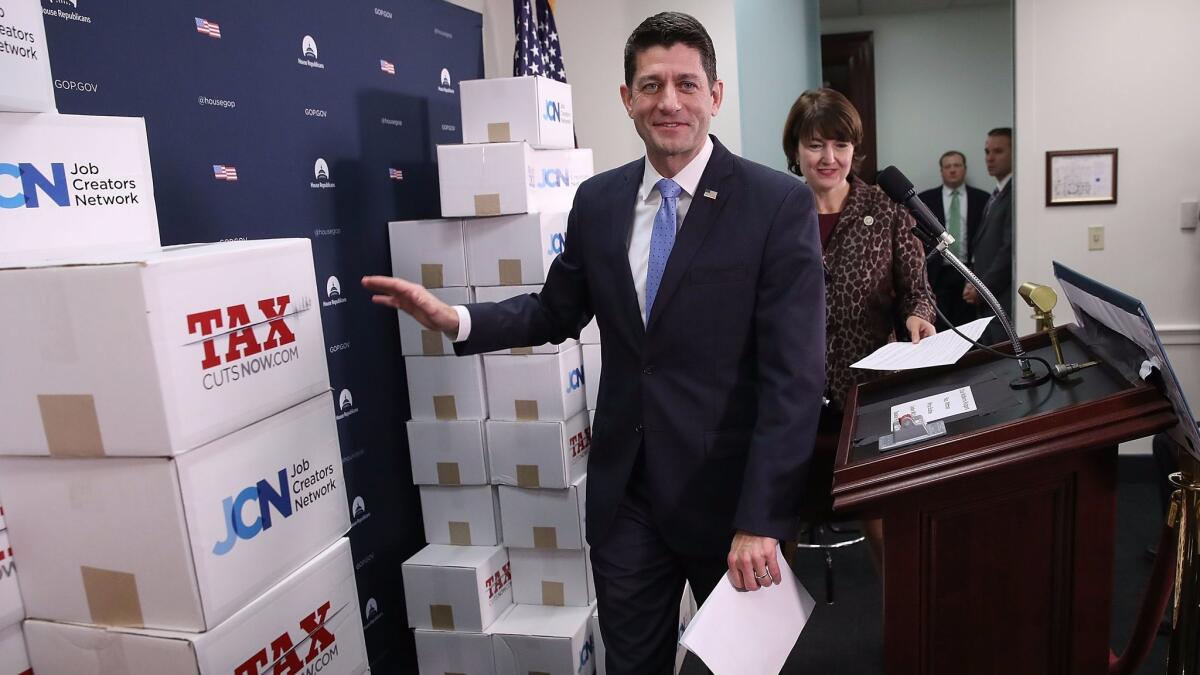Editorial: A tax bill no responsible California lawmaker should support

Any tax reform bill will have winners and losers. What’s maddening about the one the House is expected to vote on Thursday, though, is that so many of the losers are concentrated in California. Golden State lawmakers from both parties ought to fight that kind of tilted tax policy.
The GOP authors of HR 1, the Tax Cuts and Jobs Act, argue that it would cut taxes for Americans up and down the economic ladder. And the nationwide estimates by Congress’ nonpartisan number crunchers suggest that they’re right. By 2027, the bill’s final year, all but one income group — those earning $20,000 to $30,000 a year — would see a tax cut, on average.
But the bill’s cuts in personal tax rates, its increase in the standard deduction and other benefits for individual taxpayers are partially offset by reductions in some popular tax deductions — including those for state and local taxes and mortgage interest payments, many of whose beneficiaries live in states with high income or sales taxes and high property values. As a result, according to a new analysis by the left-leaning Institute on Taxation and Economic Policy, the House bill would force taxpayers in California, New York, New Jersey and Maryland to pay $16.7 billion more in personal income taxes in 2027 than they would under current law, while taxpayers in the other 46 states would pay $101.5 billion less. More than one-third of the cuts would flow to Texas and Florida.
California would be the hardest hit of all, with its taxpayers kicking a cumulative $12.1 billion in additional taxes into the federal kitty in 2027, the institute’s analysis found. But it’s not just the higher taxes that will hurt — the lower caps on the deductions for property taxes and mortgage interest likely would have an immediate, chilling effect on property values across the state. That’s good news for first-time homebuyers, bad news for millions of others who already own homes in this costly market.
Whether it was a deliberate attempt to aid red states at the expense of blue ones or just happenstance, the proposal’s approach is fundamentally unfair. Besides that, taxing the income people pay in state and local taxes is taxing money they don’t have. It would have been far better to bring the taxes on capital gains and dividends back into line with taxes on wages, as Congress did in the bipartisan Tax Reform Act of 1986. Instead, HR 1’s tax cuts would ultimately raise Californians’ personal income taxes, which is a perverse twist that none of the state’s representatives, Democrat or Republican, should support.
Follow the Opinion section on Twitter @latimesopinionand Facebook
More to Read
A cure for the common opinion
Get thought-provoking perspectives with our weekly newsletter.
You may occasionally receive promotional content from the Los Angeles Times.










